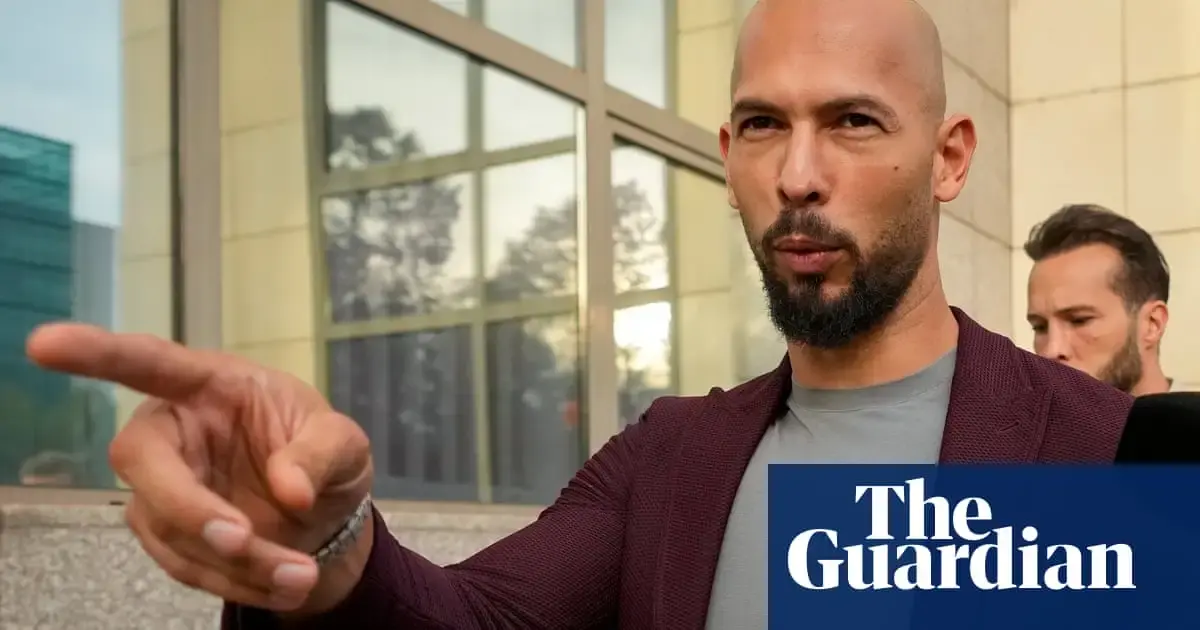- cross-posted to:
- mensliberation@lemmy.ca
Note that this poll only targetted around 3000 UK adults aged 16+. Nonetheless I personally think the trend this poll highlights is worrying and worthy of discussion.
Also note I changed the original title to not use the terms “Gen Z” and “baby boomers” since I think putting in the ages is clearer.
Some choice quotes:
On feminism, 16% of [16 to 29-year-old] males felt it had done more harm than good. Among over-60s the figure was 13%.
One in four UK males aged 16 to 29 believe it is harder to be a man than a woman.
37% of men aged 16 to 29 consider “toxic masculinity” an unhelpful phrase, roughly double the number of young women who don’t like it.
The figures emerged from Ipsos polling for King’s College London’s Policy Institute and the Global Institute for Women’s Leadership.
“This is a new and unusual generational pattern,” said Prof Bobby Duffy, director of the Policy Institute. “Normally, it tends to be the case that younger generations are consistently more comfortable with emerging social norms, as they grew up with these as a natural part of their lives.”
But Duffy said: “There is a consistent minority of between one-fifth and one-third who hold the opposite view. This points to a real risk of fractious division among this coming generation.”
Prof Rosie Campbell, director of the Global Institute for Women’s Leadership at King’s, said: “The fact that this group is the first to derive most of their information from social media is likely to be at least part of the explanation.
In the meantime, social media algorithms are filling the vacuum, she said. “This could be something that changes when young men enter the workforce but we can’t take that for granted given how important social media is in the way we understand ourselves.”



As far as I understand it men are part of fourth wave feminism, so seeing this feels conflicting to me. If you believe men are having a hard time, then feminism is right up your alley, isn’t it?
So I just wonder if this survey even makes sense because how can you answer a question you don’t understand?
Ultimately, I believe this is a direct result of the capitalist capture of feminist aesthetics into the sort of shallow “pop-feminism” that rose to prominence over the past couple of decades. For young men who’ve only ever seen this hyper-sanitized business driven take on feminism (one that notably does not make room for them), it’s easy for them to see it as an extension of the broader trends that leave them disenfranchised. A lot of young men simply do not have any experience with the broader feminist tradition.
There is a Chinese term ‘Baizuo’ which kind of hits this (If I’m wrong please correct me ). It’s described as " being hypocritical humanitarians who advocate for peace and equality only to “satisfy their own feeling of moral superiority”. [Just a wiki source]. So I think it’s fair to say this likely isn’t just marketable feminism, although it probably doesn’t, help. Just the way it’s approached, probably hyper inflated by the disconnect of lockdown and social media.
I’m not saying that “marketable feminism” is directly to blame, but rather that this hyper cynical feminism™ championed by brands and celebrities explicitly does not make room for men while the larger feminist tradition has a lot to say about men’s place in the movement. Given how insular gendered friendships are, I don’t think we should be surprised that men think what they see on TV constitutes the sum total of feminist ideas. Especially since feminism™ has kind of sucked all the air out of the room for roughly 2 decades (the majority of the life of a man younger than 30).
Sounds like their term for virtue signaling, maybe?
There has been measurable wage stagnation in the USA for the past 50 years. If you combine this with more equal pay between men and women plus an increase in education in the workforce, you are likely going to have a group of lesser educated men who have seen a backslide in their economic power. This gets combined with a general lack of social power as women can be more independent, both economically and socially.
Some men may see this as needing reforms in the economy to raise all working class economic conditions, but others may look back at feminism of all forms as being a major reason they don’t get what men a generation or two ago had.
I think that in the past it was also simpler for men to express their sexuality, at the detriment of women. Perhaps some men feel left behind as they don’t know how to move forward with society. Kind of like those people in Japan who never leave the house because the social rules go over their heads.
The hikikomori are more of an extreme case of “staying in the closet”: they are people who, when they fail to meet some expectation (like finishing their studies, or getting a job), decide to retreat to a safe space (their room) in order to not bring shame to their families, while at the same time the families cover up the fact to avoid bringing shame to themselves and the recluded person.
I think modern toxic masculinity is more of an action-reaction thing: women get some rights, at the expense of men’s rights to abuse them, so some men push back against the loss of what used to be their right… without stopping to consider whether that right was fair or not in the first place.
Makes sense. It’s interesting how many hypothesis we have in our discussion here. I wonder if there’s any studies into this.
Modern feminism has a problem with the name: it literally says “female ideology”.
That works fine when females are oppressed out of speaking their mind, and the meaning is obvious to everyone: more rights for the obviously oppressed. Many places, that is still an issue, so the name fits right in.
However, in societies where both men and women already have the same basic rights to life, speech, work, ownership, etc., for those who don’t have a full picture, its meaning turns into a “female superiority movement”. So now there appears a group of poorly informed men who, going just by the name, feel opressed by the “female superiority movement”… which fuels a desire for a counter-movement of “male superiority”… and related grifters like that Tate thing.
One possible way to solve it, would be for feminism to use a different label in these societies, one that would inherently and unmistakeably express the goal of “parity, equality of opportunities”. For example: equalitarianism.
Meanwhile, people who just heard the word “feminism” for the first time, in societies where they can see females walking freely on the streets, then the first explanation they get is from the likes of Tate… well, this happens.
When you relate this idea to what raccoona replied to me, do you think ‘patriarchy’ is a fitting term or not?
As in if you accept that it only benefits a section of all men.
I think there are many fitting terms, like “heteropatriarchy”, “toxic masculinity”, “fourth wave feminism”, etc.
What I’m wondering is whether “feminism” is an easily understandable term to describe all these fights, or if once a society gets past some level of advances towards the goal, it rather leads to confusion in new generations and becomes counterproductive.
(BTW, since I had never before, I just watched a piece of an interview with the Tate thing… the cringe is strong with that one, as well as the con artist level, redefining the meaning of words to fit his narrative, or the amount of dog whistles. Then all the sycophants in comments and related videos… 🤮)
My mother wasn’t allowed to study because she was a woman, so it really wasn’t that long ago. Perhaps it just needs time.
I’m sorry to hear that. It definitely depends on the region/country.
Despite all the things that commies did wrong post-WW2, they did offer my mom three different career choices on merits alone. Interestingly, when I went to inquire about career choices at the same place in the post-commie era, they asked for a bribe just to start talking.